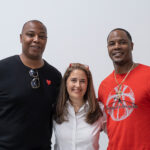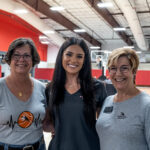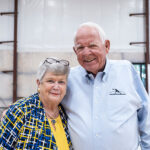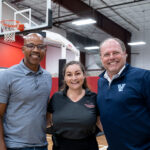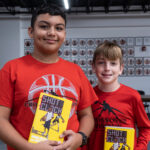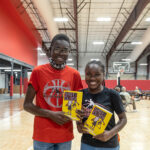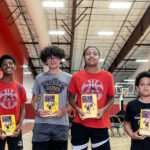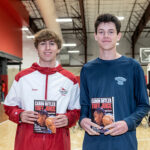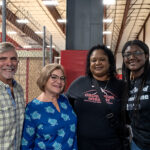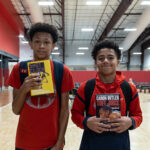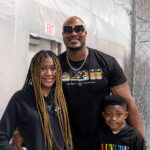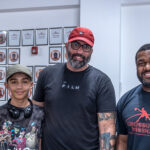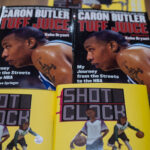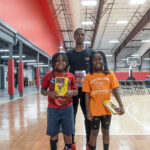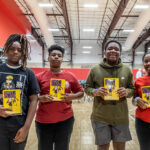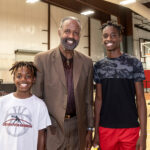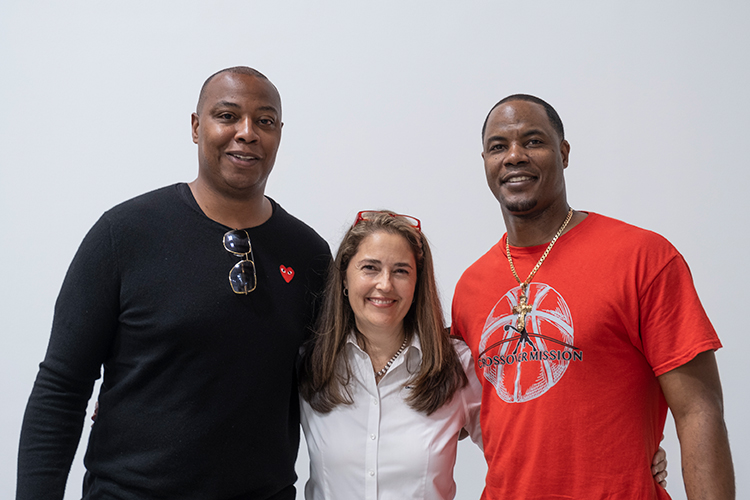
Crossover Mission scored big with a visit by former NBA player Caron Butler, considered one of the league’s toughest forwards and a force in scoring, rebounds and defense, who spoke to students at the nonprofit’s Center for Excellence.
Things weren’t always easy for Butler, who said he had been arrested more than 15 times, but he ‘rebounded’ after spending time in a correctional institution.
Eight years after being released, he was the 10th pick in the draft, became a two-time All-Star and in 2011 was an NBA champion with the Dallas Mavericks. He is currently assistant coach for the Miami Heat and has dedicated his life to inspiring and empowering young people.
After hanging up his own jersey, former NBA player Rich Rinaldi has worked with players as they transition to post-basketball careers, Butler among them. Rinaldi has consulted with Crossover for several years and thought its participants might benefit by hearing from Butler.
Butler told the students to always strive to be the best version of themselves, especially when experiencing hardships.
“It’s easy to complain. It’s easy to have a bad energy about yourself. That has a domino effect on a locker room and a community. It’s important for you to find the positives in the course of adversity. It’s important to stay solution-based,” said Butler.
Recalling advice Rinaldi gave him when he was just a rookie, he said, “‘You can’t get framed if you’re not in the picture.’ You don’t want to be in the picture in the streets, but in a positive life, you want to be in every picture.”
Butler said a person’s two most important days of their life are when they are born and when they connect with their purpose which, for him, is impacting the lives of young people.
Growing up in Racine, Wisc., he said his role models were drug dealers, people in and out of jail, pimps and hustlers.
“In the process of trying to be that I was arrested over 15 times, I was shot, I shot at people, I did two years in corrections, and I lost my best friends,” Butler said.
He spoke about the work ethic and dedication of Kobe Bryant, saying that’s what helped Bryant to become such a phenomenal athlete.
As an example, Butler recalled Bryant’s blackout workouts, when you “work until you can’t work anymore on the court.”
He said the workouts included making 1,000 shots, shooting spot shots, playing one-on-one, and finishing with 100 free throws, only to return several hours later to do it all again. It was those habits, built up every day, that prepared him for game-winning situations.
Butler related that to achieve their dreams, the students had to be determined, dedicated and disciplined, and that they should not let anyone alter their path. He stressed that they should re-route if they get off their path, just as when the navigational system in a car tells you to turn around if you make a wrong turn.
In closing, he elicited a promise from the students to stay connected to their purpose, to strive to become better versions of themselves by getting 1 percent better every day, and to give positive energy to others.
Crossover had purchased copies of Butler’s books – “Shot Clock” and “Tuff Juice” – which were given to each of its student-athletes, who all had a chance to speak with him and have their books signed.
For more information, visit crossovermission.com.
Photos by Joshua Kodis

